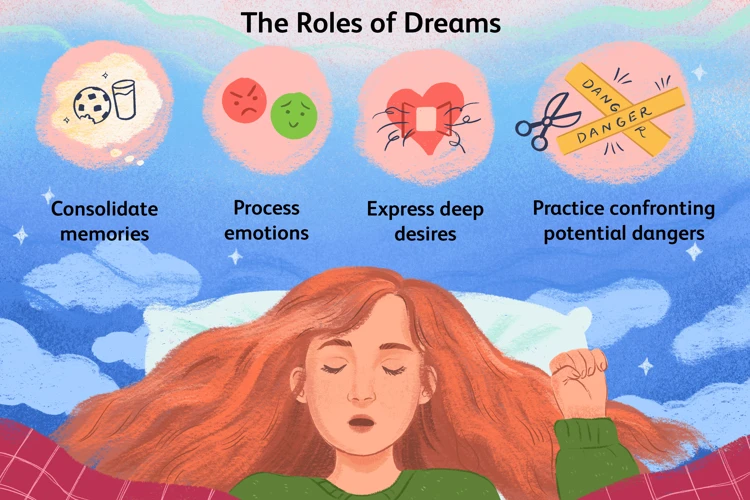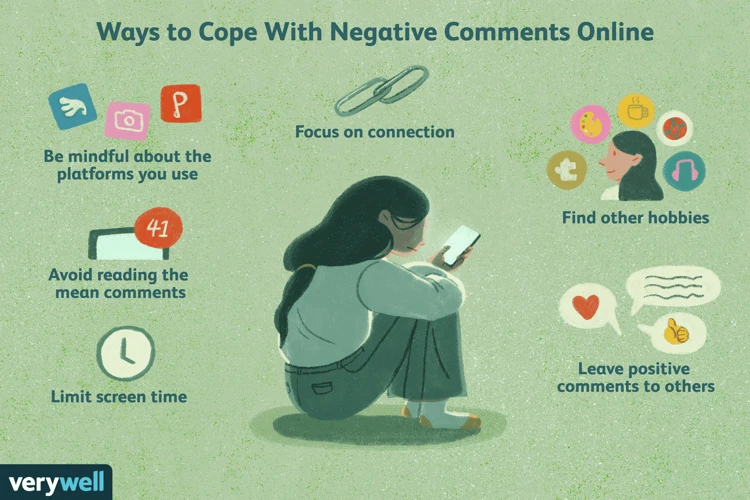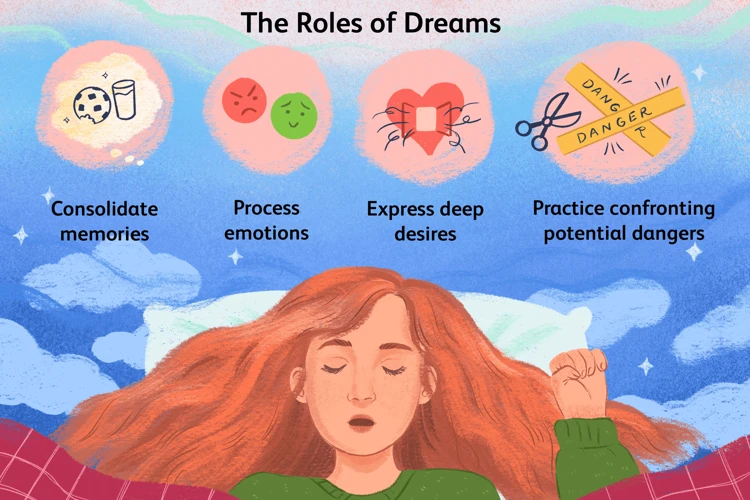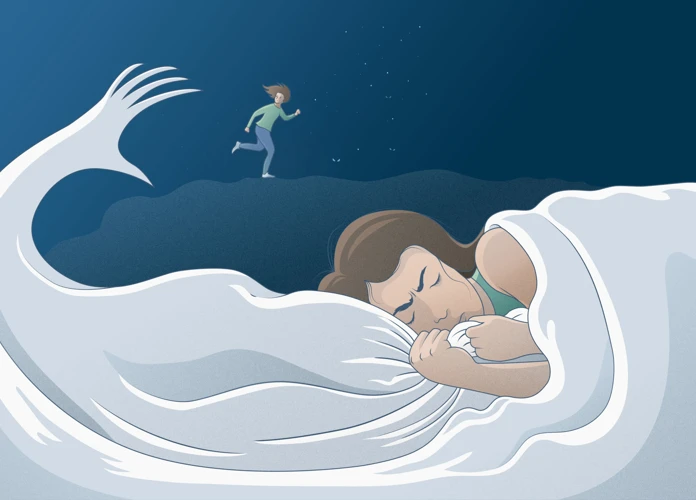The witching hour creeps upon us, and as we lay our weary heads to rest, our dreams morph into haunting nightmares. These dark visions plague our minds, leaving us startled and anxious upon awakening. But what exactly are nightmares? How do they impact our sleep quality and overall well-being? In this article, we will delve into the mysterious abyss of nightmares, exploring their definitions and causes. We will uncover the intricate link between nightmares and sleep quality, as well as their profound effects on our physical and mental health. Additionally, we will explore different interpretations of nightmares and discuss strategies for managing and overcoming these unsettling nighttime terrors. Join us as we embark on a journey to understand the impact of nightmares on our sleep and our very essence.
Understanding Nightmares

Nightmares are enigmatic and vividly unsettling dreams that often leave us feeling shaken and fearful upon awakening. These nocturnal terrors can take various forms and evoke an array of emotions, ranging from intense anxiety to sheer terror. Nightmares may involve disturbing scenarios, such as being chased, falling, or experiencing a life-threatening situation. They can also incorporate elements from our daily lives, reimagining them in unsettling ways. While nightmares can occur at any age, they are particularly common among children and adolescents. These unsettling dreams can be caused by a multitude of factors, including stress, trauma, medication, and sleep disorders. Exploring the psychological significance of recurring nightmares and identifying common themes and symbols can provide deeper insights into their meaning. Additionally, exploring cultural and historical perspectives on nightmares can shed light on their significance across different societies and time periods. Understanding the intricacies of nightmares is the key to unraveling their impact on our sleep and overall well-being.
Definition of Nightmares
Nightmares are distinct and distressing dreams that occur during the REM (rapid eye movement) stage of sleep. They are characterized by intense emotions, such as fear, terror, or anxiety, and often involve vivid and realistic imagery. Nightmares tend to be memorable and can cause severe discomfort upon waking up. These dreams differ from regular dreams, as they evoke a sense of impending danger, threat, or vulnerability. Nightmares typically disrupt the natural flow of dreams, rousing the dreamer from sleep and leaving them with lingering feelings of unease. Common themes in nightmares include being chased, falling, being attacked, or experiencing a traumatic event. It is important to differentiate nightmares from night terrors, which are a different sleep disorder characterized by sudden awakenings accompanied by intense fear and confusion. While nightmares are a normal part of dreaming, frequent or recurring nightmares may indicate underlying psychological or emotional concerns. Understanding the definition of nightmares allows us to recognize their distinct characteristics and better comprehend their impact on our sleep and overall well-being.
Causes of Nightmares
Nightmares can arise from a variety of factors, making it essential to understand the potential causes of nightmares. Stress and anxiety are top contenders, as they can trigger an overstimulated mind during sleep. Traumatic experiences, such as accidents or violence, can also lead to recurring nightmares as the subconscious processes and attempts to make sense of the trauma. Certain medications, such as antidepressants or blood pressure medications, have been linked to nightmares as a potential side effect. Substance abuse, particularly alcohol and drugs, can disrupt sleep patterns and increase the likelihood of experiencing nightmares. Sleep disorders, including sleep apnea and restless leg syndrome, can contribute to the occurrence of nightmares. Additionally, individuals with mental health conditions, such as depression, anxiety disorders, or post-traumatic stress disorder (PTSD), may experience an increased frequency of nightmares. Understanding these various triggers and potential causes can help individuals identify possible underlying factors and seek appropriate support or treatment to alleviate the impact of nightmares on their overall well-being.
The Link Between Nightmares and Sleep Quality

The link between nightmares and sleep quality is an intricate and multifaceted one. Nightmares have a profound impact on our sleep, disrupting its natural flow and leaving us feeling restless and fatigued. When nightmares occur during the rapid eye movement (REM) sleep phase, they can cause frequent awakenings, leading to fragmented sleep patterns. This fragmentation prevents us from achieving deep and restorative sleep, resulting in decreased sleep quality overall. The emotional arousal and distress triggered by nightmares can linger even after waking up, making it difficult to fall back asleep and further disrupting the sleep-wake cycle. These disturbances in sleep architecture not only leave us feeling groggy and exhausted but also have detrimental effects on our cognitive functioning, mood, and overall well-being. By unraveling the intricate ties between nightmares and sleep quality, we can better understand the impact of these haunting dreams on our nightly rest and take steps to improve our sleep hygiene and break the cycle of disrupted slumber.
Effects of Nightmares on Sleep
Nightmares have a profound impact on the quality of our sleep, leading to a range of disturbing effects. Let’s explore the specific ways in which nightmares disrupt our sleep:
1. Fragmented Sleep: Nightmares often jolt us awake, causing frequent awakenings throughout the night. These sudden disruptions fragment our sleep, making it difficult to achieve restorative and uninterrupted sleep cycles. As a result, we may experience excessive daytime sleepiness and a constant feeling of fatigue.
2. Difficulty Falling Asleep: The fear and anxiety associated with nightmares can make it challenging to fall back asleep after waking up. The lingering emotions and vivid images from the dream can cause heightened arousal, making it harder to relax and drift off into a peaceful slumber.
3. Sleep Onset Insomnia: Nightmares can trigger a form of insomnia known as sleep onset insomnia. This condition involves difficulty falling asleep initially due to the fear of experiencing another nightmare during the night. The anticipation of the next disturbing dream can create a vicious cycle of anxiety and sleeplessness.
4. Night Sweats and Sleep Disruptions: Nightmares can evoke intense emotions that manifest physically, leading to night sweats and increased heart rate. These physical responses can disrupt sleep and further contribute to sleep disturbances and difficulties in achieving deep, restorative sleep.
5. Sleep-Related Anxiety: The fear of experiencing nightmares can create anxiety around sleep itself. This sleep-related anxiety can lead to a conditioned fear response, associating bedtime with the anticipation of negative dream experiences. This can perpetuate a cycle of anxiety and worsen the frequency and intensity of nightmares.
6. REM Sleep Alterations: Nightmares primarily occur during the rapid eye movement (REM) sleep stage, which is crucial for processing emotions and solidifying memories. However, the presence of nightmares can disrupt the normal pattern of REM sleep, potentially leading to a decrease in overall REM sleep duration and quality.
Understanding the effects of nightmares on sleep is essential for comprehending their broader impact on our well-being. By recognizing the disruptive nature of nightmares, we can actively pursue strategies to alleviate their influence and improve the quality of our sleep.
Disruptions in Sleep Architecture
Disruptions in sleep architecture refer to the disturbances in the normal pattern and stages of sleep that occur as a result of nightmares. Our sleep follows a cyclical pattern consisting of different stages, including light sleep, deep sleep, and Rapid Eye Movement (REM) sleep. Nightmares can interrupt this cycle, particularly during the REM stage, which is when most vivid dreaming occurs.
During a nightmare, our brain becomes highly active, triggering a surge of emotions and physical responses. As a result, our heart rate may increase, breathing becomes irregular, and our body may even enter a fight-or-flight response. This activation disrupts the normal transitions between sleep stages, leading to fragmented sleep.
The frequent awakenings caused by nightmares prevent us from experiencing sufficient restorative sleep. As a result, we may wake up feeling tired, groggy, and unrefreshed, even after a full night’s sleep. These disruptions in sleep architecture can have a cascading effect on our overall well-being. Lack of quality sleep can impact our cognitive functions, such as attention, memory, and problem-solving abilities, leading to daytime sleepiness and decreased productivity.
The ongoing cycle of disturbed sleep due to nightmares can contribute to the development of sleep disorders, such as insomnia or sleep deprivation. These sleep disorders can further exacerbate the negative impact on our physical and mental health.
Understanding the disruptions in sleep architecture caused by nightmares highlights the importance of addressing and managing these nightly disturbances. By finding effective strategies to reduce nightmares and promote better sleep quality, we can improve our overall well-being and restore the harmonious rhythm of our sleep cycle.
Impact on Physical Well-Being

Nightmares not only disturb our sleep, but they also have a profound impact on our physical well-being. One of the primary effects of nightmares is a heightened stress response. When we experience intense fear and anxiety during a nightmare, our body releases stress hormones like cortisol, which can lead to increased heart rate, elevated blood pressure, and rapid breathing. This physiological arousal can leave us feeling exhausted and drained upon waking. The persistent occurrence of nightmares can disrupt our regular sleep patterns, leading to chronic sleep deprivation. This lack of quality sleep can impair immune function, making us more susceptible to illnesses and infections. The toll on our physical well-being resulting from nightmares is evident in the form of fatigue, weakened immune system, and overall decreased vitality. It is crucial to address and manage nightmares to mitigate their detrimental impact on our physical health.
Heightened Stress Response
When we experience nightmares, our bodies respond to the perceived threat or fear, triggering a heightened stress response. This response is characterized by the release of stress hormones like cortisol, which prepares our body for a fight-or-flight reaction. The activation of the sympathetic nervous system leads to increased heart rate, elevated blood pressure, and accelerated breathing. These physiological changes are the body’s way of preparing to tackle the perceived danger portrayed in the nightmare. However, the prolonged activation of the stress response can have detrimental effects on our physical well-being. Heightened stress levels can contribute to the development or exacerbation of various health issues, including cardiovascular problems, digestive disorders, and weakened immune system. Chronic stress has been linked to an increased risk of conditions such as hypertension, heart disease, and diabetes. The continuous activation of the stress response can lead to a state of hyperarousal, making it difficult for individuals to relax and unwind, even during waking hours. Additionally, the effects of a heightened stress response can manifest as tension headaches, muscle soreness, and general feelings of unease. It is essential to address and manage stress levels to mitigate the negative impact on our physical well-being. Taking steps to reduce stress by engaging in relaxation techniques, physical exercise, and seeking support from loved ones or professionals can be beneficial in restoring balance to our stress response and promoting overall well-being.
Impaired Immune Function
Impaired immune function is a significant consequence of experiencing frequent nightmares. When we are deprived of quality sleep due to the distress caused by nightmares, our immune system becomes compromised, leaving us more susceptible to illnesses and infections. A lack of sleep can disrupt the delicate balance of our immune response, impairing the production of key defensive cells and proteins. This weakened immune system increases our vulnerability to viruses, bacteria, and other pathogens. Additionally, chronic sleep disturbances resulting from nightmares can lead to prolonged activation of the stress response, further suppressing the immune system. This can have wide-ranging effects on our overall health and well-being, making us more prone to frequent illnesses and a slower recovery from infections. It is crucial to address the impact of nightmares on our sleep and take steps to alleviate their effects in order to maintain a robust immune system and safeguard our health.
Impact on Mental Health

Nightmares not only disrupt our sleep patterns but also have a significant impact on our mental health. The distressing nature of these nighttime hallucinations can lead to heightened levels of anxiety and depression. Individuals who experience frequent nightmares may find themselves living in a constant state of fear, fearing the return of these unsettling dreams. The emotional toll of nightmares can also contribute to the development or exacerbation of other mental health conditions, such as post-traumatic stress disorder (PTSD). This debilitating disorder manifests as recurring nightmares following a traumatic event, often causing individuals to relive the distressing experience during sleep. It is crucial to recognize the profound impact of nightmares on our mental well-being and to seek support and treatment when necessary to promote healing and recovery.
Anxiety and Depression
Anxiety and depression are two common mental health conditions that can be significantly influenced by nightmares. Nightmares have been found to exacerbate symptoms of anxiety and depression, creating a cycle of emotional distress. When individuals experience frequent nightmares, it can lead to heightened anxiety levels during wakefulness. The lingering feelings of fear and unease from the nightmares can carry over into daily life, making it difficult to relax and feel safe. The disrupted sleep caused by nightmares can contribute to fatigue, irritability, and difficulty concentrating, all of which are common symptoms of depression. This creates a vicious cycle, where the presence of anxiety and depression increases the likelihood of nightmares, and the nightmares further worsen these mental health conditions. It is crucial for individuals experiencing anxiety and depression to address and manage their nightmares as part of their overall mental health treatment plan. Seeking therapy, such as cognitive-behavioral therapy for insomnia (CBT-i), can help individuals develop coping mechanisms for nightmares and break the cycle of anxiety and depression. Additionally, practicing relaxation techniques, such as deep breathing exercises or mindfulness meditation, can help alleviate anxiety and promote better sleep, reducing the occurrence of nightmares and improving overall mental well-being.
Post-Traumatic Stress Disorder
Post-Traumatic Stress Disorder (PTSD) is a psychiatric condition that can manifest after experiencing or witnessing a traumatic event. Nightmares are a common symptom of PTSD and play a significant role in its manifestation. Individuals with PTSD often experience recurring nightmares related to the traumatic event, which can intensify feelings of fear, anxiety, and distress. These nightmares are often vivid and detailed, causing the person to relive the traumatic event, and can significantly disrupt their sleep quality. The content of these nightmares is generally related to the traumatic experience, sometimes incorporating fragments of memories, emotions, or sensory details associated with the event. The nightmares can be so distressing that the individual may develop a fear of sleeping, leading to chronic insomnia and further exacerbating their overall well-being. This debilitating cycle of nightmares and sleep disturbance can contribute to other symptoms of PTSD, such as hyperarousal, avoidance behaviors, and mood disturbances. It is crucial for individuals with PTSD to seek appropriate support and treatment, as addressing the nightmares is an essential part of managing and recovering from this complex disorder.
Interpretation of Nightmares

Nightmares have long fascinated and perplexed scholars and individuals alike, beckoning us to uncover their hidden meanings and messages. From a psychological perspective, nightmares are often seen as reflections of our unconscious thoughts, fears, and unresolved conflicts. These menacing dreams provide a window into our deepest anxieties and can serve as a pathway to self-discovery and healing. Dream analysis and the exploration of symbols play a crucial role in interpreting nightmares, allowing us to decipher their underlying messages. Symbols within nightmares can range from common imagery like darkness, snakes, or falling, to more personal and symbolic representations that vary from person to person. Our cultural and historical backgrounds also shape the way we interpret nightmares, as societal beliefs and experiences influence our understanding of these haunting dreams. As we embark on the journey of understanding our nightmares, delving into the realms of psychology and symbolism, we unravel the intricacies of our subconscious minds and gain valuable insights into our inner selves.
Psychological Perspectives
Psychological perspectives offer valuable insights into understanding nightmares and their impact on our well-being. From a psychological standpoint, nightmares are often seen as a manifestation of our subconscious mind trying to process and deal with unresolved emotions, fears, and traumas. Examining nightmares through the lens of psychoanalysis, Sigmund Freud proposed that they serve as a way for our unconscious mind to express repressed desires, anxieties, and conflicts. According to Freud, nightmares could hold hidden messages and symbolic meanings, providing a pathway to delve into the depths of our psyche. Another psychological perspective, cognitive-behavioral theory, suggests that nightmares may be linked to maladaptive thought patterns and negative beliefs. This perspective views nightmares as a result of cognitive processes and interpretations that contribute to distressing dreams. By identifying and changing these negative thought patterns, individuals can work towards reducing the occurrence and intensity of nightmares. Additionally, approaches like imagery rehearsal therapy aim to modify the content of nightmares by actively rewriting and rehearsing alternative outcomes during waking hours. By engaging with psychological perspectives, individuals can gain a deeper understanding of the underlying psychological processes at play in nightmares and explore therapeutic interventions to alleviate their impact.
Dream Analysis and Symbols
Dream analysis and symbols play a significant role in understanding the deeper meanings behind nightmares. When it comes to interpreting dreams, psychologists and researchers believe that the symbols and imagery present in our dreams can provide valuable insights into our subconscious mind. While individual symbols can have personal meanings for each dreamer, some symbols have commonly recognized interpretations. For example, dreaming of falling may symbolize a lack of control or insecurity in one’s waking life. Snakes in dreams often represent hidden fears or potential threats. Water is often associated with emotions and the unconscious mind. By analyzing these symbols in the context of the dreamer’s personal experiences and emotions, psychologists can help uncover hidden messages or unresolved issues that may be contributing to the occurrence of nightmares. It is important to note that dream analysis is subjective and can vary from person to person. Keeping a dream journal and noting recurring symbols or themes can aid in the interpretation process. Understanding the symbols within nightmares can offer valuable insights and assist individuals in addressing underlying emotional or psychological challenges.
Managing and Overcoming Nightmares
Nightmares can be distressing and disrupt our sleep, but there are strategies available to help manage and overcome them. Creating a relaxing sleep environment is crucial, as it promotes a sense of calm and tranquility. This can be achieved by keeping the bedroom cool, dark, and quiet, and using soothing scents or white noise machines if desired. Implementing stress reduction techniques is also beneficial, such as practicing mindfulness or engaging in deep breathing exercises before bed. These practices help alleviate anxiety and promote a sense of well-being. Seeking professional help from therapists or counselors who specialize in sleep disorders and nightmares can provide valuable guidance and support. These professionals can employ various therapeutic techniques, including cognitive-behavioral therapy, which helps individuals identify and challenge negative thought patterns associated with their nightmares. With a combination of creating a peaceful sleep environment, adopting stress reduction techniques, and seeking professional assistance, it is possible to manage and overcome the torment of nightmares, restoring peaceful slumber and nurturing overall well-being.
Creating a Relaxing Sleep Environment
Creating a Relaxing Sleep Environment plays a crucial role in preventing nightmares and improving overall sleep quality. Here are some key aspects to consider:
1. Optimize the Bedroom: Make sure your bedroom is a peaceful oasis conducive to sleep. Keep it clean, organized, and free from clutter. Use calming colors on the walls, such as soft blues or earthy tones, to create a tranquil atmosphere.
2. Comfortable Bedding and Mattress: Invest in a comfortable mattress and high-quality bedding. Choose pillows and blankets that provide the right level of support and warmth. Experiment with different materials, such as memory foam or down alternatives, to find what works best for you.
3. Temperature and Lighting: Maintain a comfortable temperature in your bedroom, aiming for a slightly cooler environment. Use blackout curtains or blinds to block out excess light, ensuring a dark and serene sleep environment.
4. Noise Control: Minimize noise disruptions by using earplugs, a white noise machine, or soothing sounds, such as rainfall or ocean waves. These can mask external noises and promote a sense of calmness.
5. Establish a Bedtime Routine: Create a pre-sleep routine that helps signal to your body and mind that it’s time to unwind. Engage in relaxing activities like reading a book, taking a warm bath, or practicing gentle stretching or meditation. Avoid stimulating activities or electronic devices close to bedtime.
6. Sleep Hygiene Habits: Prioritize good sleep hygiene practices, such as maintaining a consistent sleep schedule, avoiding caffeine and heavy meals before bed, and keeping electronics out of the bedroom. These habits promote a healthier sleep-wake cycle.
7. Address Underlying Stress: Identify and address any underlying sources of stress or anxiety in your life. Consider stress reduction techniques like journaling, practicing mindfulness, or seeking professional support if needed.
By implementing these strategies, you can transform your sleeping environment into a peaceful sanctuary, promoting a restful night’s sleep and reducing the likelihood of nightmares. Remember, creating a relaxing sleep environment goes hand in hand with nurturing a healthy sleep routine for improved overall well-being.
Stress Reduction Techniques
Stress reduction techniques can play a crucial role in managing and overcoming nightmares, as they target the underlying factors that contribute to these distressing dreams. Here are some effective techniques that can help alleviate stress and promote a more peaceful sleep:
- Deep Breathing: Practicing deep breathing exercises, such as diaphragmatic breathing or the 4-7-8 technique, can help activate the body’s relaxation response and reduce stress levels.
- Mindfulness Meditation: Engaging in mindfulness meditation techniques, such as focusing on the present moment and observing thoughts without judgment, can help cultivate a sense of calm and reduce anxiety.
- Progressive Muscle Relaxation: This technique involves systematically tensing and releasing different muscle groups to promote physical relaxation and alleviate tension in the body.
- Guided Imagery: Listening to or practicing guided imagery exercises can transport the mind to a peaceful and serene place, helping to reduce stress and anxiety levels.
- Journaling: Keeping a dream journal can be a powerful tool for processing and exploring the emotions and experiences associated with nightmares. Writing down thoughts and feelings can provide a sense of release and help gain insights into recurring themes or triggers.
- Regular Exercise: Engaging in regular physical activity can help release endorphins, improve mood, and reduce stress levels. Aim for at least 30 minutes of moderate exercise most days of the week.
- Healthy Sleep Habits: Establishing a consistent sleep routine, creating a comfortable sleep environment, and practicing good sleep hygiene can contribute to better overall sleep quality and reduce the likelihood of nightmares.
By incorporating these stress reduction techniques into daily life, individuals can support their mental and emotional well-being, ultimately leading to a more restful and nightmare-free sleep. It’s important to remember that finding the right combination of techniques may require some experimentation, and it’s always advisable to consult with a healthcare professional for personalized guidance and support.
Seeking Professional Help
When nightmares become persistent and start significantly affecting our sleep and daily lives, seeking professional help is crucial. Mental health professionals, such as psychologists and psychiatrists, can offer valuable guidance and support in managing and overcoming nightmares. They possess the expertise to assess the underlying causes of nightmares and develop personalized treatment plans. Through therapy, individuals can explore the emotional and psychological factors contributing to their nightmares and work towards resolving them. Cognitive-behavioral therapy (CBT) is a commonly used approach in treating nightmares. This therapy aims to identify and challenge negative thought patterns and behaviors associated with nightmares, helping individuals develop coping strategies and relaxation techniques. In some cases, medication may also be prescribed to address any underlying sleep disorders or psychological conditions. Seeking out professional help can provide individuals with the tools and resources needed to navigate the complex realm of nightmares and improve their sleep quality and overall well-being. Remember, you don’t have to face these nocturnal terrors alone – help is just a consultation away.
Conclusion
In conclusion, the impact of nightmares on our quality of sleep and overall well-being is undeniable. Nightmares can disrupt our sleep architecture, leading to fragmented and restless nights. This can have detrimental effects on our physical well-being, including a heightened stress response and impaired immune function. Furthermore, nightmares can take a toll on our mental health, triggering anxiety, depression, and even post-traumatic stress disorder in some cases. Understanding the psychological perspectives and exploring dream analysis can provide insights into the hidden meanings behind these unsettling dreams. When it comes to managing and overcoming nightmares, creating a relaxing sleep environment and practicing stress reduction techniques can be beneficial. Seeking professional help may also be necessary, especially in cases where nightmares are severely impacting daily life. By addressing the underlying causes and implementing strategies to cope with nightmares, we can strive for better sleep and improved overall well-being. Remember, a good night’s sleep is not only important for our physical health but also for our mental and emotional resilience. Let us embrace the darkness of our dreams, unravel their mysteries, and reclaim our nights from the clutches of nightmares.
Frequently Asked Questions
What is the difference between a nightmare and a night terror?
Nightmares are vivid and disturbing dreams that occur during REM sleep and are often recalled upon waking. Night terrors, on the other hand, are episodes of intense fear and panic that occur during non-REM sleep and are usually not remembered.
Can nightmares be a symptom of a sleep disorder?
Yes, nightmares can be a symptom of sleep disorders such as sleep apnea, restless leg syndrome, or narcolepsy. It is important to consult with a healthcare professional if you frequently experience nightmares that disrupt your sleep.
Are nightmares only experienced by children?
No, nightmares can affect individuals of all ages. While they are more commonly experienced by children and adolescents, adults can also experience nightmares due to stress, trauma, or underlying sleep disorders.
Do nightmares have any connection to real-life events?
Yes, nightmares can be influenced by real-life events, experiences, or emotions. They may reflect unresolved fears, anxieties, or traumatic experiences. However, not all nightmares have a direct connection to real-life events.
How do nightmares impact our ability to obtain restful sleep?
Nightmares can disrupt our sleep by causing frequent awakenings, increased heart rate, and feelings of fear or anxiety. These disruptions can prevent us from entering deep and restorative sleep stages, leading to feelings of fatigue and daytime drowsiness.
Are nightmares a sign of a mental health condition?
Nightmares can be a symptom of mental health conditions such as anxiety disorders, depression, and post-traumatic stress disorder (PTSD). However, occasional nightmares are common and do not necessarily indicate a mental health issue.
Can medication or substance use contribute to nightmares?
Yes, certain medications and substances, such as antidepressants, beta-blockers, and withdrawal from drugs or alcohol, can disrupt sleep patterns and increase the likelihood of experiencing nightmares.
Can recurring nightmares be treated?
Yes, recurring nightmares can be treated through various approaches. Techniques such as cognitive behavioral therapy, relaxation exercises, and keeping a dream journal can help identify triggers and develop strategies to manage and overcome recurring nightmares.
Can lucid dreaming help in controlling nightmares?
Lucid dreaming, which is the ability to be aware and consciously control your dreams, can be a helpful technique in managing nightmares. By becoming lucid during a nightmare, individuals can take control of the dream narrative and actively change or redirect the dream scenario.
When should I seek professional help for recurring nightmares?
If recurring nightmares persist and significantly impact your overall well-being, it is advisable to seek professional help. A healthcare provider or mental health professional can evaluate your situation and recommend appropriate interventions or therapies to address the underlying causes of your nightmares.








